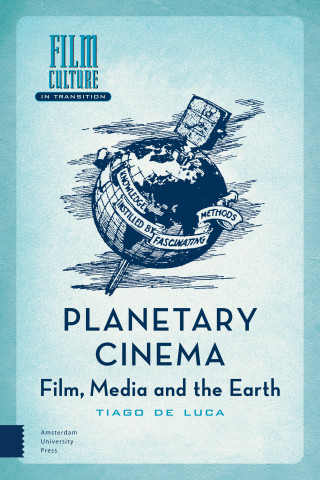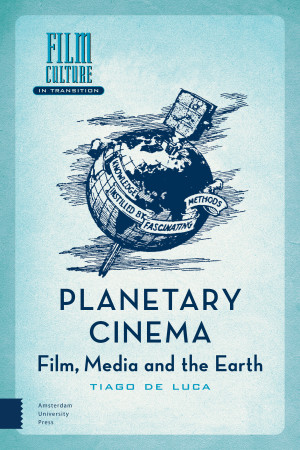"This timely book traces a history of universalizing whole-Earth images from panoramas, world exhibitions, stereographs, and silent-era cinema to IMAX and BBC nature documentaries, showing the problems and promise of such universalizing visualizations for our current moment of ecological crisis."
- Jennifer Lynn Peterson, Woodbury University, Los Angeles
"At our current critical juncture in which new thinking about the planet has never been more urgent, Tiago de Luca’s Planetary Cinema reminds us of media’s long history of reflecting, shaping, and questioning planetary consciousness. This work offers a fascinating interdisciplinary exploration of how the figure and image of the world have been constructed and challenged through film and related media. Combining an innovative conceptual approach with illuminating case studies across history from panoramas and early cinema to experimental film and tv documentaries, Planetary Cinema makes important contributions to the growing field of ecocinema. A philosophically-informed and historically sensitive study of how media have made us feel at home, or not, in the world and its remaking."
- Paula Amad, University of Iowa
"This fascinating study shows how cinema has both bolstered and challenged our planetary imaginaries, from 19th-century imperialism to the current ecological crisis. With deep historical knowledge, De Luca brings past and present media practices into a productive dialogue, where each transforms our understanding of the other."
- Michael Cowan, University of Iowa

